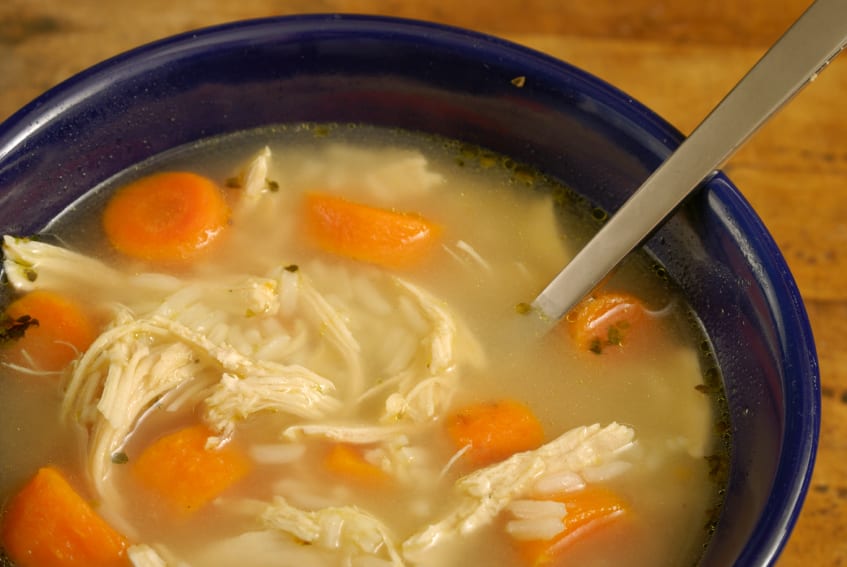SPLEEN QI DEFICIENCY DIET

Please see Dietary Recommendations for Your Diagnosis for general principles.
- The Spleen likes a regular meal schedule and needs downtime when it is not called upon to digest and absorb food. Constant snacking or grazing will make Spleen Qi deficiency worse.
- Inadequately chewed food imposes a heavy burden on the Spleen and can cause Spleen deficiency.
- If you suffer from stagnation or Spleen Qi deficiency, it is especially important to pay attention to your posture during and after eating. Sitting in a twisted or scrunched up way impairs the function of the digestive organs.
- If you suffer from Spleen Qi deficiency, Liver Qi stagnation, or Kidney yang deficiency, you should be especially careful to avoid overeating. Eat only to the point that your stomach is 2/3 full.
- Light exercise on a daily basis (especially stretching) is very important for individuals with Spleen Qi deficiency, Liver Qi stagnation, and Kidney yang deficiency. A light walk after meals leads to better digestion and better health.
- If you suffer from Spleen Qi deficiency, dampness, phlegm, or Kidney yang deficiency, try to minimize your consumption of pasteurized dairy products. Some individuals will have to completely eliminate dairy from their diets in order to resolve patterns of dampness or phlegm, whereas other individuals can tolerate 2-3 servings of dairy without a problem.
- Food that are especially nourishing to the Spleen include soups and stews, root vegetables, orange and yellow squash, chicken, and beef.
FOODS THAT DAMAGE THE SPLEEN
- Sugar (including high fructose corn syrup, honey, agave nectar, and all other sweeteners), grains (including wheat, rice, and oatmeal), and starches (potatoes) impose a heavy burden on the Spleen. Spleen Qi deficiency is the most common disharmony among Americans and the Standard American Diet (SAD!) is the reason behind this. Eliminating sugars, grains, and starches from the diet is the most important place to focus your attention.
- Uncooked and cold foods. Think of cooking as a “pre-digestion” of your food. By cooking the majority of your food, you are significantly lightening the load on your Spleen – it does not have to work as hard to extract nutrition from your food. Please understand that this does not mean that you have to cook your food until it is gray – for instance, vegetables should be steamed or stir-fried just long enough to brighten their natural color. Although cooking may destroy some nutrients, it makes the remaining nutrients much easier to assimilate, so the net result is better nutrition.
- Iced drinks are especially harmful to the Spleen. Although it is a difficult habit to establish, learning to enjoy your beverages at room temperature is a healthful step to take. It is especially important to follow this guideline if you experience a number of symptoms of Spleen Qi and yang deficiency, including fatigue, loose stools, cold hands and feet, dizziness when standing up, and aversion to cold.
- Sweet foods. According to Chinese medicine, each flavor “enters” a particular organ. Sour enters the Liver, salty enters the Kidney, pungent enters the Lung, bitter enters the heart, and sweet enters the Spleen. Small amounts of a flavor serve to boost the function of the organ that it enters, but large amounts or foods that are very intensely flavorful weaken their respective organs. All grains are classified as sweet foods in Chinese medicine, as are fruits, pastries, candies, etc. As you might expect, most American diets are very heavily weighted toward the sweet flavor and are not balanced with very much of the pungent, sour, or bitter flavors. (An example of a pungent food would be horseradish, an example of a sour food would be pickles, an example of a bitter food would be radicchio.) This imbalance serves to weaken the Spleen. In addition, the sweet flavor is inherently dampening, meaning that it leads to the generation of excessive fluids and phlegm. In Chinese medicine, it is said that the Spleen hates dampness, so this is another reason that eating too many sweet foods damage the Spleen.
- Unhealthy fats, such as hydrogenated fats, fried foods, and most vegetable oils. These foods “gum up the works” of the Spleen and also lead to the formation of phlegm. For this reason, dairy products are generally considered Spleen-weakening foods as well. The exception to this rule is raw, unpasteurized dairy. Because the natural enzymes and beneficial bacteria are intact in raw milk, it is far more digestible than pasteurized milk. Raw, grass-fed dairy products are available locally at Nors Raw Dairy in Abbot, Texas. Healthier fats to use for cooking or baking include butter, coconut oil, and olive oil.

